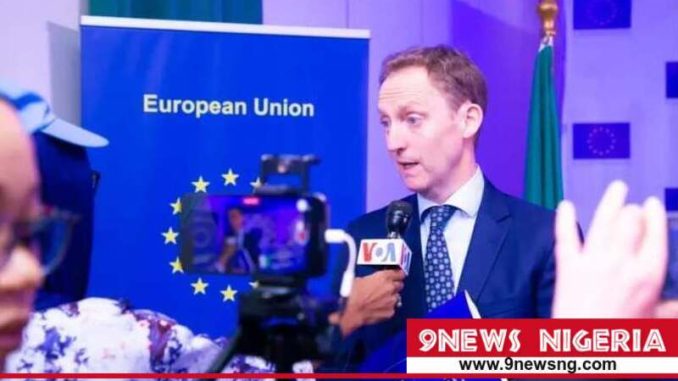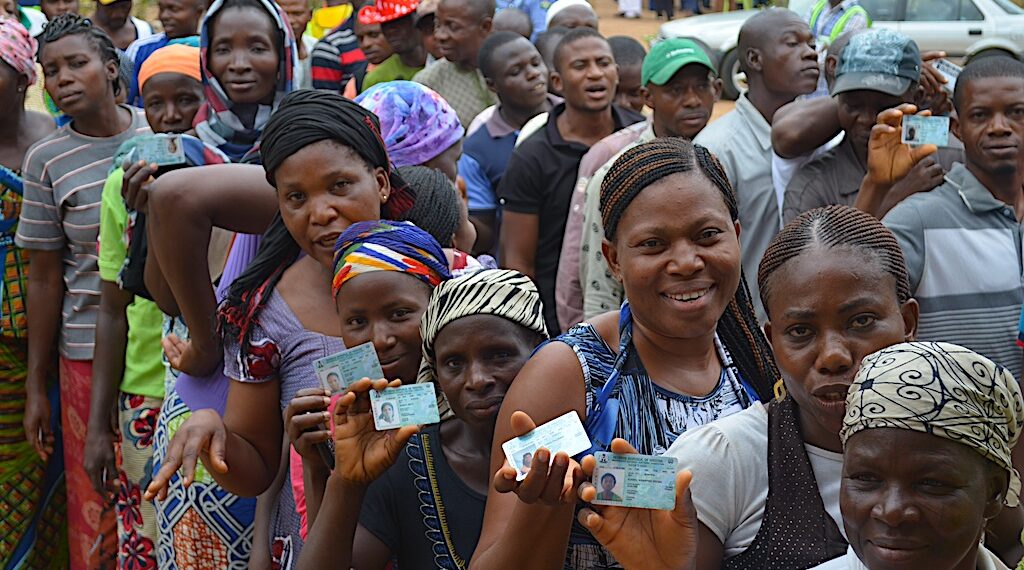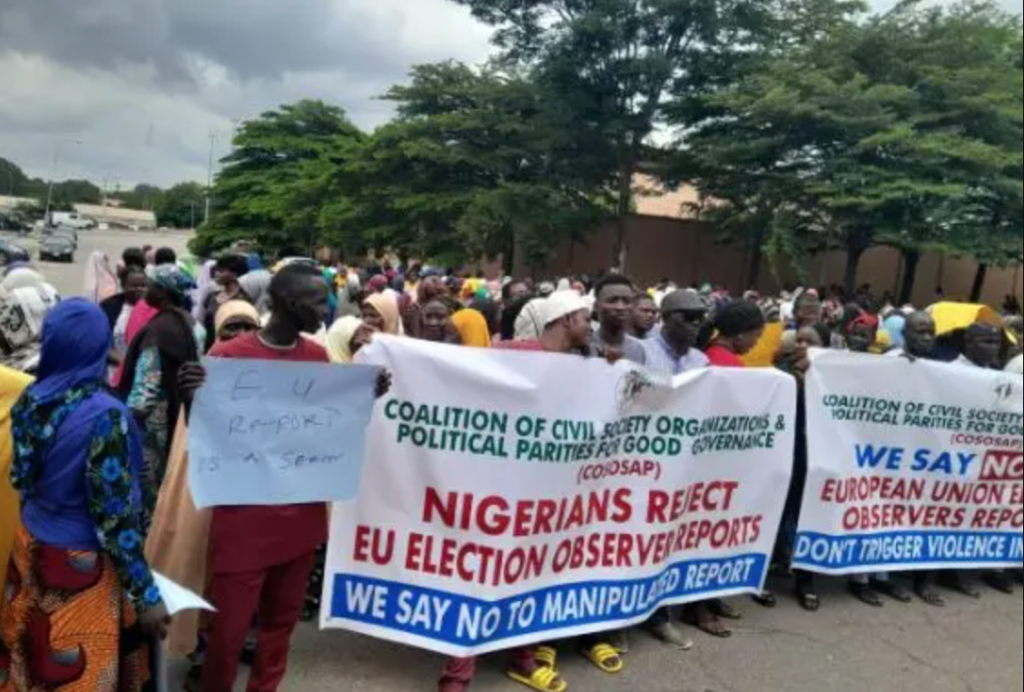
Introduction
The 2023 general elections in Nigeria were marked by controversy and allegations of electoral irregularities. The European Union (EU) Election Monitoring Group’s report on these elections has been a subject of debate and contention. This article aims to provide a critical analysis of the EU report, examining its findings and the responses it has generated.
Background
The EU Election Monitoring Group is recognized as a credible and experienced observer of elections worldwide. Their final report on Nigeria’s 2023 elections highlighted several concerns regarding the conduct and transparency of the electoral process. The report emphasized the need for further reforms to enhance credibility, inclusiveness, and accountability.
EU Report Findings
The EU report identified various shortcomings in the electoral process, including widespread irregularities and a lack of transparency. It criticized the Independent National Electoral Commission (INEC) for its failure to address these issues effectively. The report also highlighted the low voter turnout, which was the lowest since the end of military rule in Nigeria.
The EU report stressed the importance of six key areas for improvement in Nigeria’s electoral process. These areas include removing ambiguities in electoral law, ensuring the real-time publication of election results, and clamping down on electoral offences. The report called for comprehensive reforms to restore public trust in the electoral system.

Nigerian Government Response
The Nigerian government, particularly supporters of President Bola Tinubu, rejected the findings of the EU report. They described the report as “jaundiced” and accused the EU of bias. The government urged foreign interests, including the EU, to be objective in their assessments and to allow Nigeria to handle its internal affairs independently.
Dele Alake, the Special Adviser to President Tinubu, criticized the EU for relying on limited coverage and unsubstantiated claims in their report. He questioned the credibility of the EU’s assessment and accused them of sustaining a predetermined denunciatory stance. Alake emphasized that the 2023 elections were not fraudulent and called for the nation to move forward.

Labour Party In Court Over 2023 Election Result
Nigeria’s major opposition during the 2023 presidential election, the Labour Party and its candidate Peter Obi had filed a court petition challenging the outcome of the February 25th disputed presidential election in which the INEC declared APC party candidate, Bola Ahmed Tinubu as the winner.
According to the INCE’s allegedly manipulated result, the Labour Party which galvanised many young and first-time voters came third in the election, while PDP’s candidate Atiku Abubakar came second, all behind winner Bola Tinubu from the ruling All Progressives Congress party.
Labour Party’s spokesperson Yunusa Tanko told journalists that they were challenging the processes that led to the declaration of Bola Ahmed Tinubu as the winner of the 2023 presidential election.
“We are fighting for our stolen mandate,” Labour Party’s Peter Obi and Yusuf Datti Baba-Ahmed supporters chanted during a protest in Abuja.
PDP’s Perspective
The Peoples Democratic Party (PDP) Presidential Campaign welcomed the EU report, considering it a credible assessment of the elections. They concurred with the EU’s findings, citing the lack of credibility and irregularities in the electoral process. The PDP accused President Tinubu and the ruling All Progressives Congress (APC) of rigging the elections.
Phrank Shaibu, a Special Assistant to PDP Presidential Candidate Atiku Abubakar, criticized the government’s response to the EU report. He pointed out that even primary school children recognized the lack of credibility in the elections. Shaibu highlighted the delayed uploading of full election results by INEC and questioned the sanity of describing such an election as credible.
Implications and Recommendations
The EU report and the ensuing debates have significant implications for Nigeria’s democratic process. The findings have raised concerns about the integrity and transparency of future elections. It is crucial for the Nigerian government, INEC, and other stakeholders to address the issues raised by the EU report to restore public trust in the electoral system.
To enhance the credibility of future elections, it is imperative for the government to consider the recommendations put forth by the EU report. This includes implementing comprehensive legal and operational reforms, ensuring the timely publication of election results, and effectively addressing electoral offences. These measures will contribute to a more inclusive and accountable electoral process.
International Community’s Role
The EU’s involvement in Nigeria’s electoral process, including funding and technical support, demonstrates the international community’s commitment to promoting democracy and good governance. The EU’s observations and recommendations should be seen as constructive contributions to Nigeria’s democratic development. It is essential for the Nigerian government to embrace such feedback and work collaboratively with international partners to strengthen the electoral process.
Conclusion
The EU report on Nigeria’s 2023 general elections has sparked intense discussions and reactions from various stakeholders. While the Nigerian government has rejected the report’s findings, the PDP and other critics have embraced them as credible assessments of the electoral process. Moving forward, it is crucial for Nigeria to address the issues raised by the EU report and undertake comprehensive reforms to enhance the credibility, inclusiveness, and transparency of future elections. By doing so, Nigeria can strengthen its democratic institutions and restore public trust in the electoral system.
By Mr Obinna Ejianya (9News Nigeria – Melbourne, Australia)
#9newsnigeria #nigeria2023 #elections #Nigeriaelections #eu
